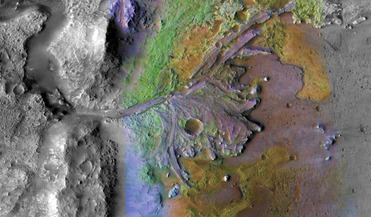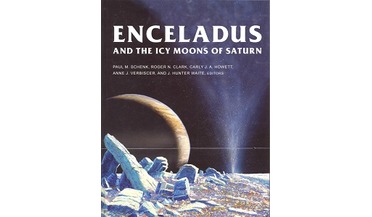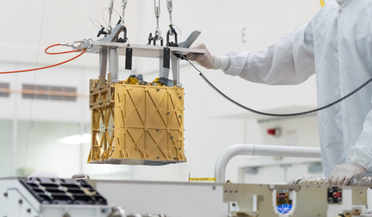 29 April 2018
Atmospheric Evolution on Inhabited and Lifeless Worlds
29 April 2018
Atmospheric Evolution on Inhabited and Lifeless Worlds
... at “graduate-level students and researchers working across the fields of atmospheric science, geochemistry, planetary science, astrobiology and astronomy”. This is undoubtedly a textbook, being filled with equations, line diagrams and charts that...
 21 November 2018
Jezero Crater chosen as landing site for Mars 2020 mission
21 November 2018
Jezero Crater chosen as landing site for Mars 2020 mission
...as far back as 3.6 billion years old, that could potentially answer important questions in planetary evolution and astrobiology,” said Thomas Zurbuchen, associate administrator for NASA’s Science Mission Directorate. “Getting samples from this unique...
 13 April 2019
Enceladus and the Icy Moons of Saturn
13 April 2019
Enceladus and the Icy Moons of Saturn
... of Enceladus, the second on its famous plumes, the third on the other icy moons and the fourth on astrobiology and possible exploration of Enceladus. Why is Enceladus worthy of so much attention? Linda Spilker, Cassini Project Scientist at JPL...
 01 October 2019
Life on Mars: what to know before we go
01 October 2019
Life on Mars: what to know before we go
... science of “Chlorophyll, Lichens and Algae”, Mars meteorites and methane. On methane, which “packs a very powerful astrobiological punch”, he explains that almost none should exist “without being actively created by living things”. Referencing cows...
 23 April 2021
Mars rover instrument, MOXIE, extracts first oxygen from Red Planet
23 April 2021
Mars rover instrument, MOXIE, extracts first oxygen from Red Planet
... into useable things: propellant, breathable air, or, combined with hydrogen, water.” A key objective of Perseverance’s mission on Mars is astrobiology, including the search for signs of ancient microbial life. The rover will characterize the planet...